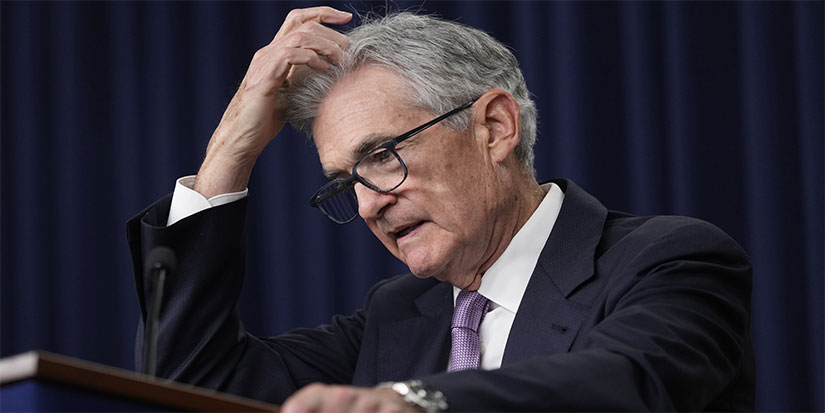
Be Smart
The BE SMART podcast has been in existence for a while, and I thought it was a clever bit of branding on my part, because isn’t that what we all hope to aspire to do in money and markets—be smart?
The Best of Times, the Worst of Times
Trading is funny—sometimes things are going really well, and sometimes things are going very poorly.
Swamp Yankees
The people at the Federal Reserve keep telling me that we are headed into a recession. I don’t see it!
Something Important Just Happened
A couple of weeks ago, I wrote about how I thought the bottom in commodities was near. I think it happened.
The Coming Commodities Bull Market
People like stocks and bonds but don’t like commodities.
If the Music’s Still Playing, You Have to Keep Dancing
Private equity firms do private equity. If they run out of good opportunities, it’s not like they’re going to switch to, say, commodities trading. They will continue to search for deals at higher and higher valuations at worse and worse terms, in competition with each other.
And as long as endowments and pensions are plowing money into private equity, the PE firms will continue to have dry powder and a need to put this money to work.
This is how bubbles burst.
The title of this piece is inspired by a quote from Chuck Prince, who was head of Citi during the housing bubble. He was referring to the phenomenon in finance known as “monkey see, monkey do”—if all your competitors are piling into real estate, you have no choice but to do the same to keep up. If you took a contrarian view—if you identified a housing bubble, bet against it, and were wrong; or at least, you were early—there would be hell to pay with your shareholders. Therefore, there is no compelling need to be prudent.
This is how bubbles burst.
Right now, the music is still playing. And there is leverage on top of leverage on top of leverage, like there was in the housing bubble. The thing about leverage is that it works both ways, up and down, but people don’t realize that there is a down part of the cycle, where the losses are magnified. Alpha does not come from leverage. Private equity is a funny business—it’s essentially a long-only mutual fund that buys private instead of public companies and applies leverage, collecting a lot of fees. Would you leverage up your mutual fund 5-to-1? Of course not, because you know the leverage works in both directions. But since the inception of modern private equity in 2009, leverage has only worked in one direction.
The people who work in private equity, as smart as they are, are powerless to stop it. If Blackstone, a PE firm, suddenly stopped doing PE, the stock would go down a lot. It is a social, cultural, and psychological phenomenon. All bubbles are. There are significant benefits to being a public company, namely liquidity and transparency, which we seem to have forgotten.
One thing about bubbles: When the tide goes out, we find out who is swimming naked. The exposure to PE goes far beyond pensions and endowments. Banks hold some of this debt, too. The companies run by private equity firms employ millions of people. If there was a 60 Minutes reporter who had the financial sophistication to understand the scale of this problem, then people might be alerted to the dangers. There have been a couple of books. Recently, a young woman with a creative writing MFA wrote about her short career in private equity, but it lacked specificity and was not very illuminating.
The Nature of Investment Bubbles
One day, Jon Gray and the rest of the private equity heads will be sitting in front of a congressional committee to answer for their misdeeds. After the financial crisis, the banks had a terrible reputation and were the targets of left-wing editorials about the evils of capitalism. Having worked for one of those banks, I can tell you that there were good people working at the bank. Sure, there were some bad actors. They are everywhere. What I’m saying here is the bubbles are reflexive; they’re a self-reinforcing process, and we are all powerless to stop it.
Blackstone, KKR, Apollo, and TPG will never return capital to LPs. I mean, this happens sometimes in the investment industry—a hedge fund will stop taking investments because it becomes too big to put its ideas to work. This is an economic calculation—they can make more off the incentive fees than the management fees. But when you’re a hammer, everything looks like a nail. After rolling up everything in the world, they’ll be rolling up Boy Scouts selling popcorn in front of Kroger. Somewhere out there is the world’s dumbest private equity deal, and we are very close to closing it.
I’m sure you’ve all seen The Big Short. One of the interesting things about that movie was that the housing bears (with the possible exception of Michael Burry) completely underestimated how bad the fallout from the housing crisis would get. It was worse than they ever imagined. Typically, the pushback I get from people is that these funds are locked up to term, and over the course of a 10-year fund, the PE firms will be able to earn their way out of it and ride out the downturn.
Let me remind you that there is no such thing as a soft landing anywhere at any point in history.
Jared Dillian, MFA
|